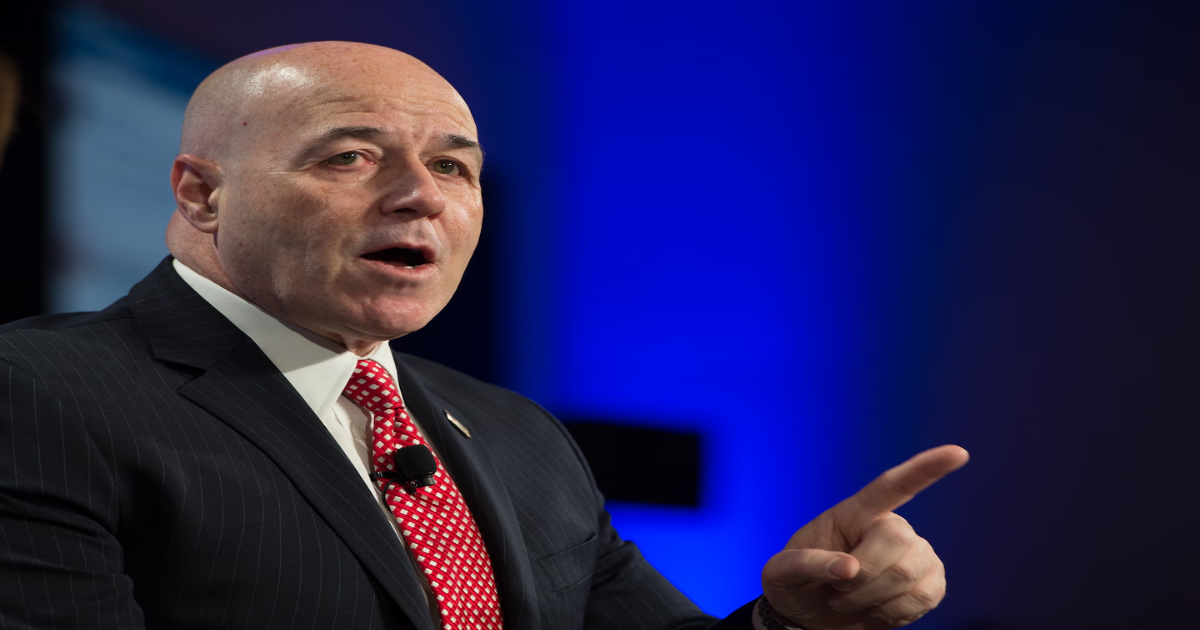Bernard Kerik, the New York City police commissioner who was hailed for leading the department during the Sept. 11, 2001, terrorist attacks, but later saw his career unravel as he was jailed for crimes including tax fraud, died May 29 in Manhattan. He was 69.
His death was announced by FBI Director Kash Patel in a social media post, but no cause was mentioned.
Mr. Kerik, an Army veteran, joined the New York Police Department in 1986. He became police commissioner at the turn of the millennium, working closely with Mayor Rudy Giuliani. Mr. Kerik had worked on Giuliani’s security detail during his mayoral campaign in the early 1990s.
On Sept. 11, 2001, Kerik stood next to Giuliani as the World Trade Center towers collapsed, nearly burying the pair, The Washington Post reported.
“Through extraordinary bravery that allowed us to concentrate on the doable and with substantial additional assistance, we escaped safely. That attitude permeated the way in which the recovery was handled for the next four months,” Giuliani said in a statement after Mr. Kerik’s death.
Mr. Kerik was widely praised for his service in the weeks after the terrorists attacks, during which he rarely went home from work, sleeping on a cot in his office. Among the honors he was given for his service during and after the 9/11 attacks was an honorary appointment as commander of the Most Excellent Royal Order of the British Empire by Queen Elizabeth II.
His leadership brought him to the attention of President George W. Bush, who appointed Mr. Kerik to train a new Iraqi police force after the U.S.-led invasion in 2003 and nominated him the next year for secretary of homeland security.
After leaving city government in 2001, Mr. Kerik became involved in national Republican politics, including giving a speech at the Republican National Convention in 2004. But Mr. Kerik’s political ascent entailed more public scrutiny of his past.
Just days after his homeland security nomination, Mr. Kerik withdrew his acceptance, confessing he had not paid taxes for a nanny whose immigration status was in question.
Mr. Kerik also faced allegations that he had not reported gifts he received as a New York City official, including from a construction company suspected to be linked to organized crime. During a commission into 9/11, Mr. Kerik was criticized for failures of command and control during the attacks, including communication with the fire department — charges he heatedly disputed.
He was accused of questionable behavior during his law enforcement career, The Post reported. New York City’s Conflicts of Interest Board fined him $2,500 for sending two police officers to Ohio to help research his 2001 memoir, “The Lost Son: A Life in Pursuit of Justice.”
In 2009, Mr. Kerik pleaded guilty to eight felonies, including two counts of tax fraud and lying to White House officials while being considered to lead the Department of Homeland Security.
He was sentenced to four years in prison, exceeding federal sentencing guidelines. The judge, Stephen C. Robinson, asserted that Mr. Kerik had used the aftermath of 9/11 for personal gain and later made “a conscious decision to essentially lie to the President of the United States to get a cabinet position.”
President Donald Trump pardoned him in 2020. In a statement at the time, the White House wrote that since his conviction, Mr. Kerik had become an advocate for criminal justice, focusing on prisoner reentry reform.
Mr. Kerik worked on the effort to overturn the election later that year, joining a team including Giuliani and former White House chief strategist Stephen K. Bannon that sought to urge members of state legislatures to challenge Joe Biden’s victory, among other tactics, to help keep Trump in the White House.
Bernard Bailey Kerik was born on Sept. 4, 1955, and grew up in Paterson, New Jersey.
A high school dropout, he enlisted in the Army, where he earned a black belt in karate. He served as a military policeman while stationed in South Korea and later worked as a contract security officer in Saudi Arabia, having that country’s royal family as a client. He then joined law enforcement in the United States, working in North Carolina and New Jersey before coming to New York.
His career got a boost after he met Giuliani. Mr. Kerik was named as the No. 2 man in the city’s corrections department once Giuliani became mayor and rose to commissioner a few years later.
“Commissioner Kerik was very helpful in resolving problems of staff brutality in the segregated units,” John Boston, director of the Prisoners’ Rights Project of the Legal Aid Society of New York, told The Post at the time. “He did some draconian things, but he also carried out steps that were worthwhile and valuable.”
After his legal troubles that landed him in prison, Mr. Kerik was released in 2013 with about five months left in his sentence. He went on to become a frequent guest at Mar-a-Lago and a Fox News pundit. At the time of his pardon in 2020, a senior administration official told The Post that a number of people lobbied the president on Kerik’s behalf, including Giuliani, who was Trump’s personal attorney at the time.
He continued to be a staunch supporter of the president, retweeting posts on X that lauded Trump’s signature policies.
Mr. Kerik’s survivors include his wife, a son and two daughters.
